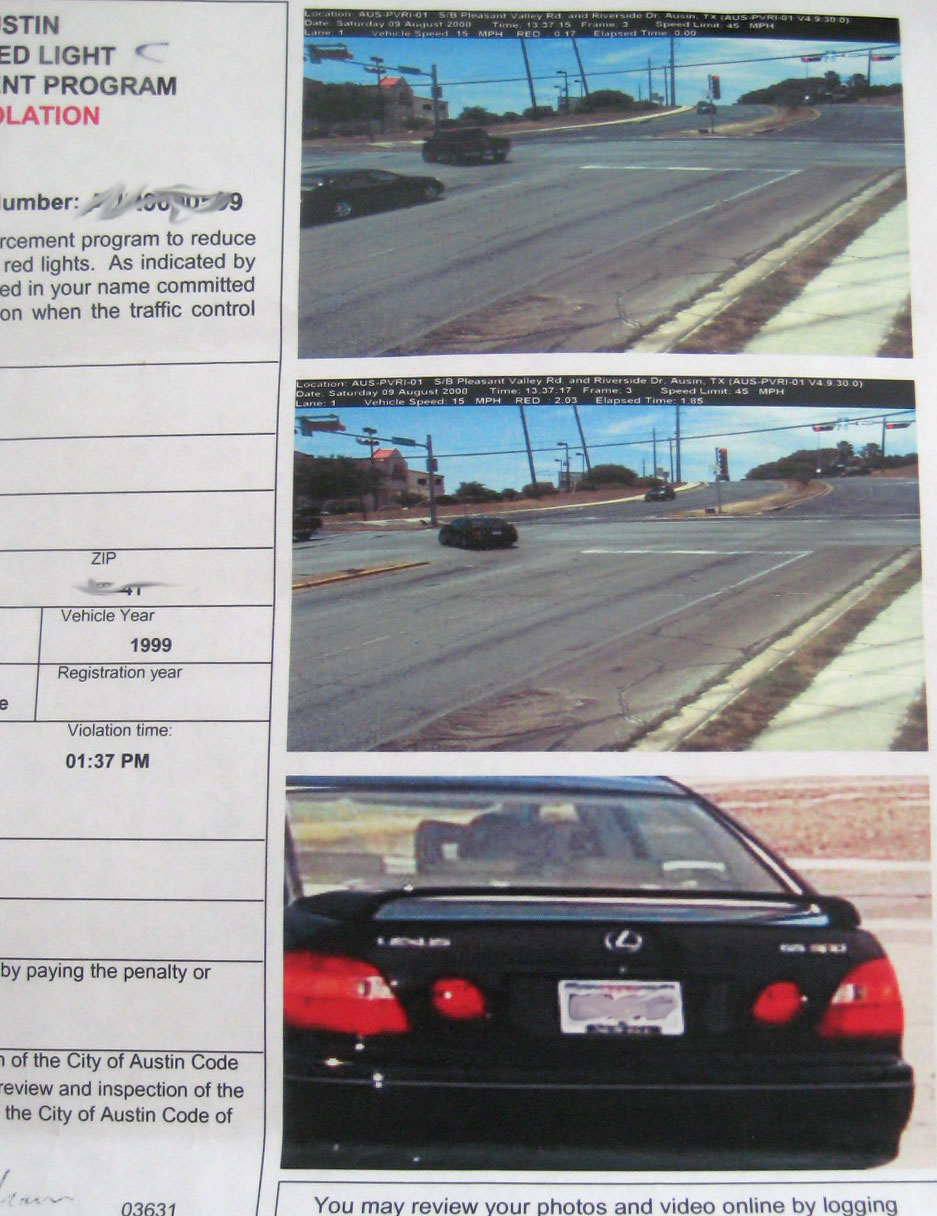Lately, we’ve been getting a lot of calls about both red light cameras and speed cameras.* One thing is clear: drivers are pretty angry. If you aren’t mad about them, you probably should be:
- The city pays a private vendor $2,978 per camera, per month, and $7.50 per citation – even if some violations are later dismissed in court.
- Someone paying a ticket online via credit card is charged a $3.50 “convenience” fee.
- Providence school-zone speed cameras have raised $607,600 in two months - more money than was projected for the entire fiscal year.
Touted as a public safety measure, the cameras are clearly making some people a lot of money. But they also come at a serious expense to our civil liberties. For the record, we’ve been raising concerns about the cameras since 2004, and we continue to oppose their use – and the involvement of private, for-profit vendors – for traffic enforcement. Here are some of the concerns we’ve raised:

Automatically issuing citations raises fundamental due process concerns: instead of authorities proving that someone is at fault, that “burden of proof” is placed on the owner or lessee of the vehicle. What happens if someone other than the owner is driving when the camera records the violation? Should a driver who speeds out of the way to avoid an accident be treated the same way as the person who caused the accident? This technology offers no room for these sorts of judgment calls. Further, the law specifies that citations be mailed – but no delivery confirmation is required. What happens when someone has recently moved or when a ticket is delivered to the wrong address? Under these circumstances, a motorist could be subject to increased fines or even a license suspension without ever having received the ticket.
When private companies make money every time a traffic ticket is issued, the incentive is for them to put cameras in as many places as possible, and where the most money is likely to be paid, notwithstanding how dangerous the location may or may not be. In short, public safety is not a major part of the equation – which is directly at odds with the purpose of traffic enforcement. Also in terms of public safety, sending a citation days - or even weeks - after a driver has sped through a school zone or residential neighborhood negates the immediate benefit of an officer pulling someone over to prevent an accident. What happens when someone is speeding because they are under the influence of drugs or alcohol?
While Rhode Island forges ahead, other states are experiencing the negative consequences of this approach and pulling back from the use of traffic cameras. The Iowa Department of Transportation conducted a study on the placement of speed cameras - serviced by Gatso USA, the same company poised to receive a contract to operate cameras in Pawtucket - and determined that the potential problems outweighed the potential benefits, concluding that camera placement was often based on maximizing revenue from speeding tickets rather than safety needs. Similar findings in California have highlighted the priority of profits over safety, where some contracts for red light cameras imposed fines on cities for extending the duration of yellow signals.
Worse, purported safeguards to prevent erroneous tickets from being issued are incredibly weak. Under Rhode Island law, a police officer is supposed to verify the validity of every ticket before it is sent out. Yet, after Providence instituted speed cameras, dozens, if not hundreds, of tickets were thrown out in court for being defective.
Finally, reliance on cameras and recording technologies to enforce traffic laws introduces a form of mass surveillance of motorists. For example, what happens to the photos when a violation is later dismissed? Under state law, the photos can be kept for months before being destroyed. Conceivably, authorities could use them in other ways, but without clear guidelines, how are we to know? As surveillance cameras of any kind become more ubiquitous, a further erosion of privacy rights is inevitable.
If you’re mad about these cameras, you aren’t alone. Unfortunately, the ACLU of RI was the only organization that testified against the speed camera bill when it was enacted in 2016. Here are 10 tips for testifying so that next time, you can make your own opposition heard.
Right now, Providence is the only municipality using these cameras, but others, like Pawtucket, are considering it. If this idea crops up in your community, urge your City or Town Council to put the brakes on traffic cameras.
*Red light cameras take a photo when a motorist goes through a red light. Speed cameras take a photo when someone exceeds the speed limit – usually in a school zone or residential neighborhood.
